This article will be about my latest backpacking experience: hiking to the most beautiful lake in Europe. Fair enough, the “most beautiful lake” is rather subjective, but for us it actually was the most beautiful lake we ever saw. It’s not only about the lake either, there is a beautiful surrounding since the lake is situated in the middle of deserted mountains. It’s also only reachable by foot and it’s pretty far away from any civilisation, truly a hidden gem…
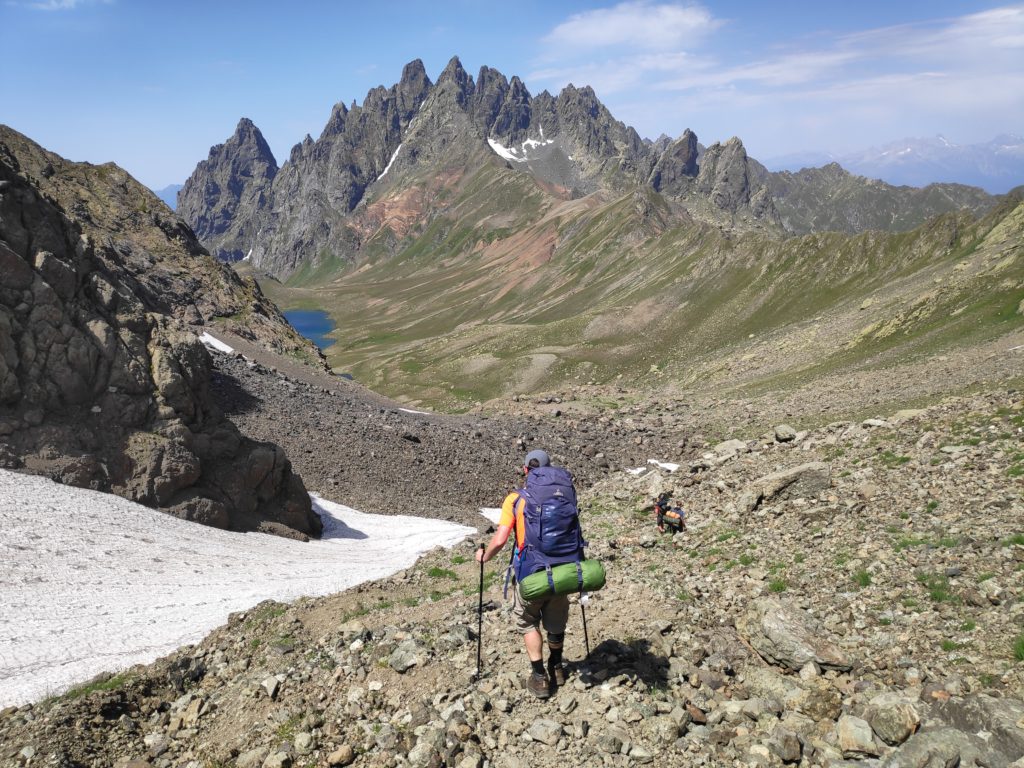
About the lake
Let’s start with talking about the lake and the location. The lake is called “Tobavarchkhili lake” and it’s located in the Caucasus in Georgia. In this article I’m going to share our story and include some tips and tricks. However, if you are interested in an actual trail description/guide I would recommend to check out Caucasus-trekking. It’s a great resource for most hikes in the Caucasus and it has also been very helpful for us.
Reaching the start of the trail
It took us quite some time to arrive at the small town where we would start our journey: Mukhuri.
We stayed the night in a rather charming (but basic) guesthouse.
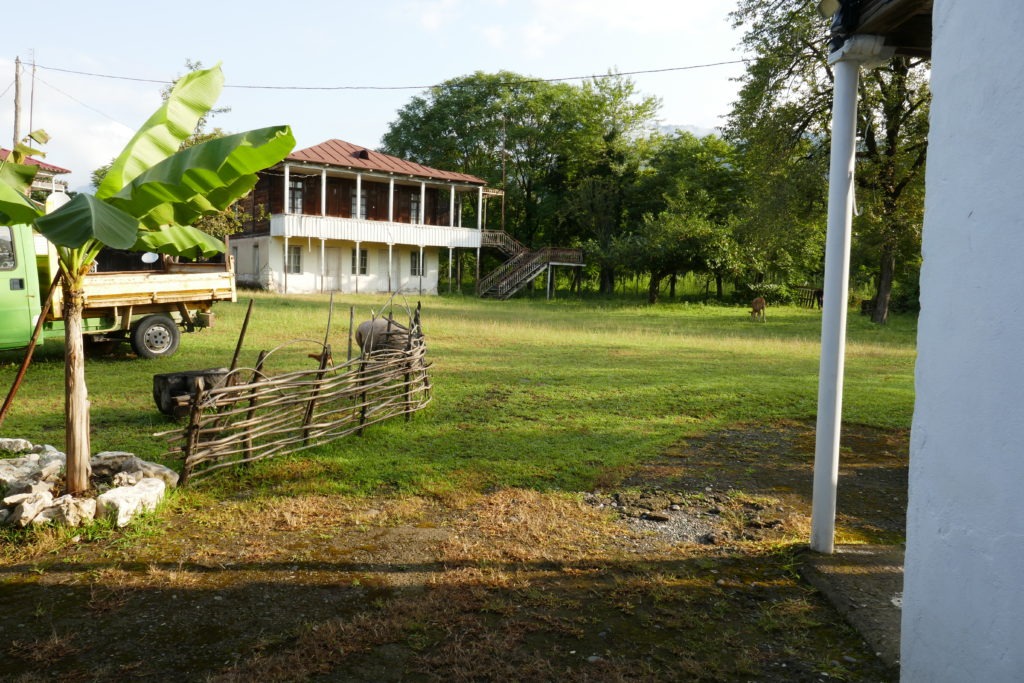

There is one guy in the village who frequently drives hikers from Mukhuri to Natipuru hut, this is the part where the trail becomes really interesting and beautiful. The guy asks quite a bit of money (especially for Georgian terms), but the alternative was to walk a long and exhausting dirt road trail for an entire day – not something we really considered an option. We really wanted to use every day to the fullest.
So the next morning we woke early in order not to miss our ride:
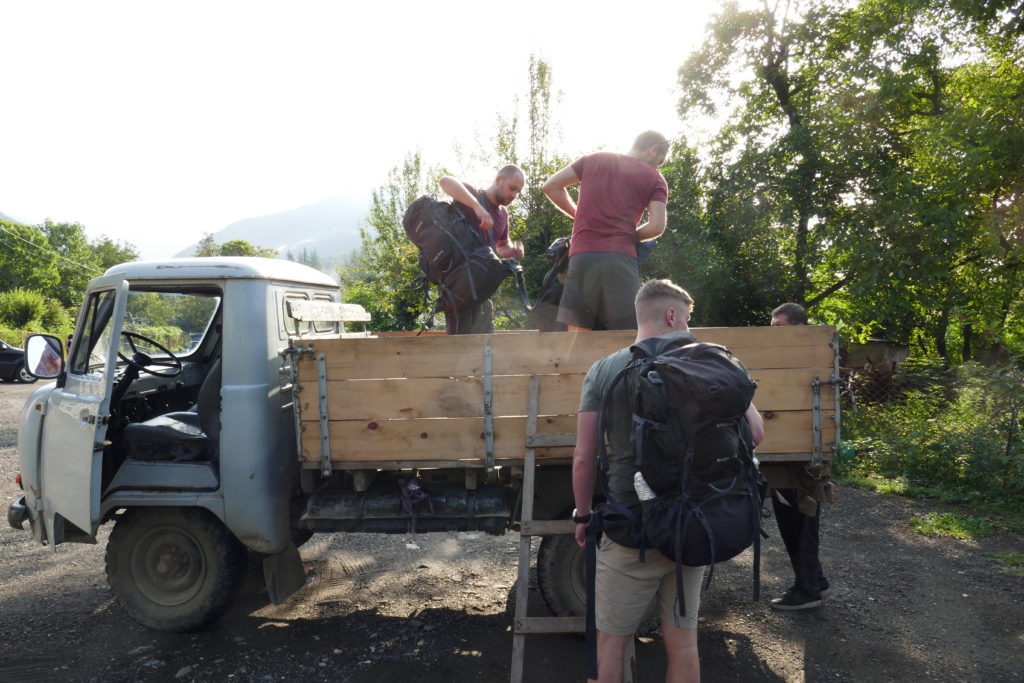

After an hour or two the truck suddenly stopped because the road was blocked by a recent landslide. We started to try and clear the road with our hands, but there was a big tree underneath the dirt that we couldn’t move an inch. Also, our truck was nowhere near strong enough to pull the tree.
If a truck can’t solve a problem in Eastern Europe, it is fixed by getting a bigger truck:
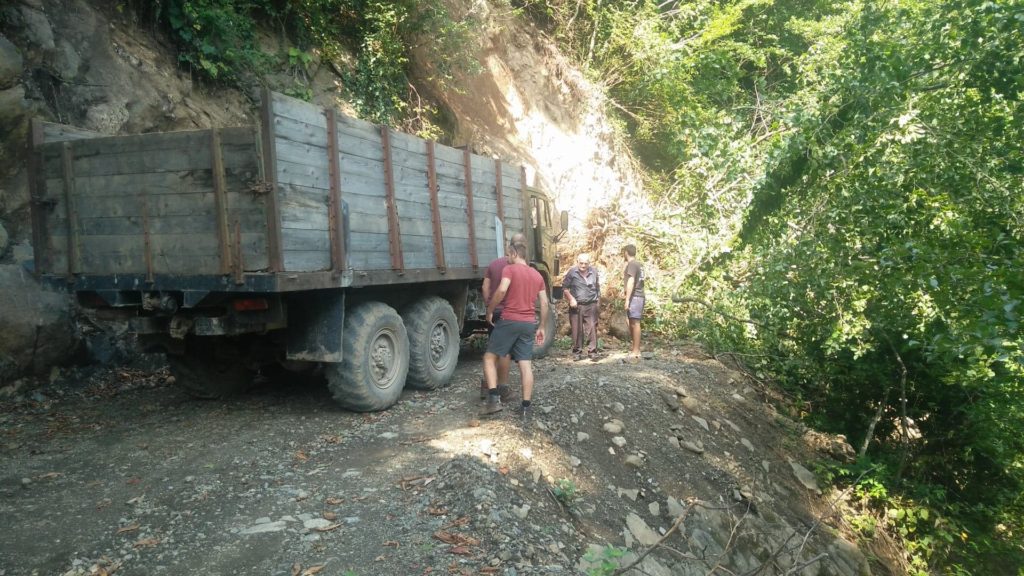

We were lucky that some other people where working somewhere nearby and that they were friendly enough to help us out. We probably wasted 1-2 hours here, but hey, it was an experience in itself.
Somewhere in the early afternoon we arrived at our “destination”, which was the start of our 5-day hiking trip:
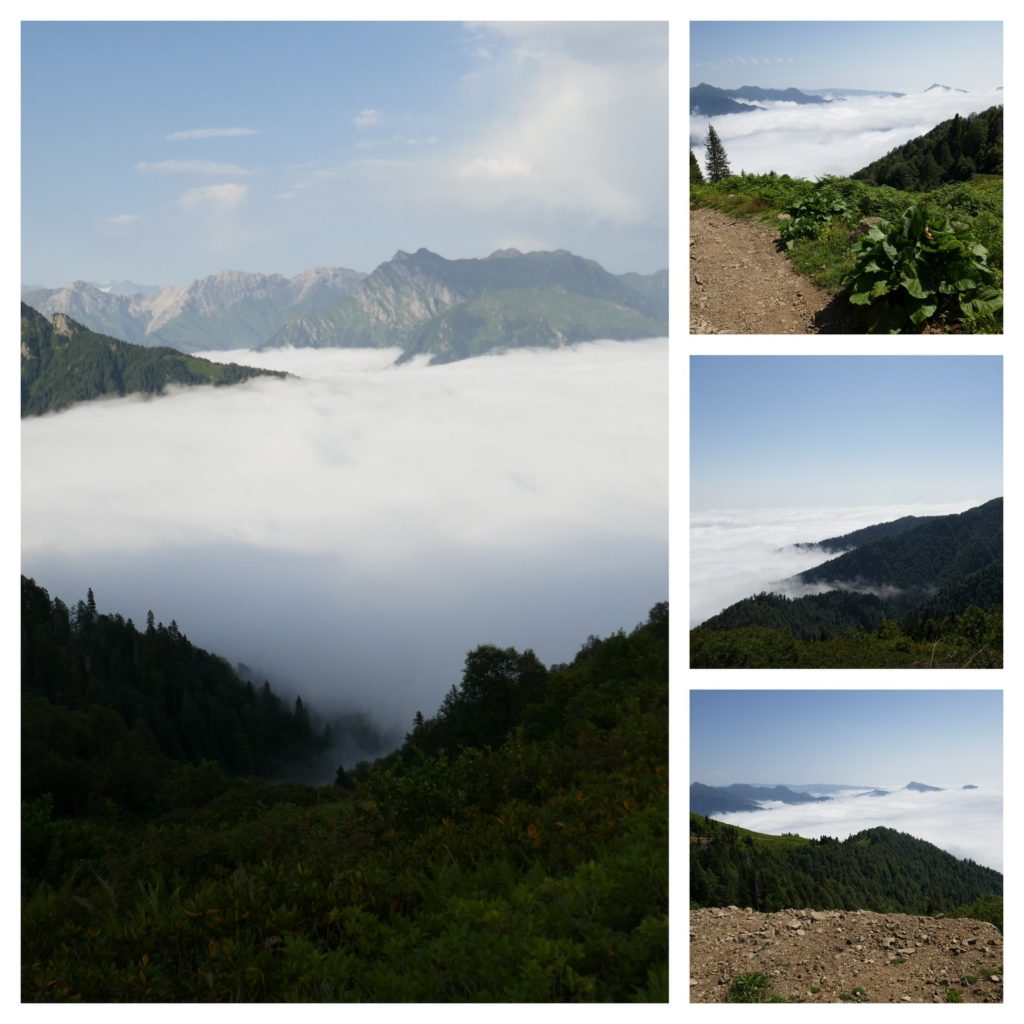

Ah… It feels good to be back in the mountains.
The rest of the day did not quite go as planned. We couldn’t find the original trail – not because of lack of navigational skills btw 😉 -, so we tried our luck taking another trail. We didn’t feel too good about the trip at this point because the trail already “disappeared” at day one. However, eventually we figured out where we were and how to rejoin the original trail – but it would be way too late to rejoin the trail today so we decided to camp close to a shepherd’s hut and to reach Okhoje lake the next day.
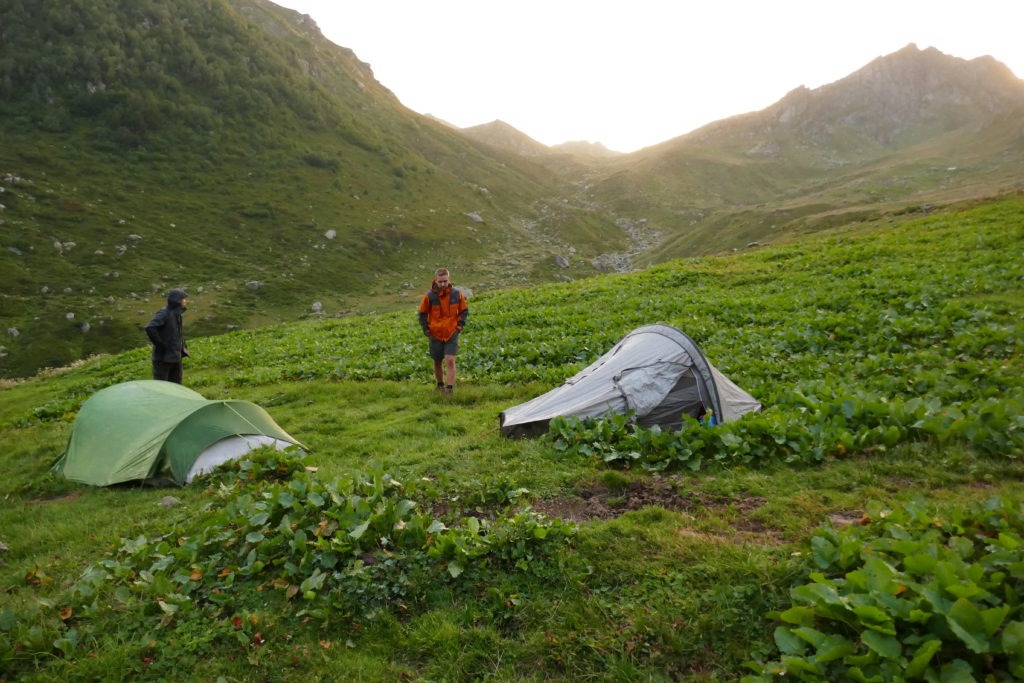

It’s not a spectacular place to camp, but it still looks okay, right? Well, we had to pitch our tent on top of cow shit, so this campsite won’t be winning any prices.
Stage 2: reaching Okhje lake
The next day we start our journey to find the original trail again. This wasn’t too hard to be honest. We even notified the creator of Caucasus-trekking and he updated the article mentioning that the route we took is a valid alternative and is probably a more scenic route.
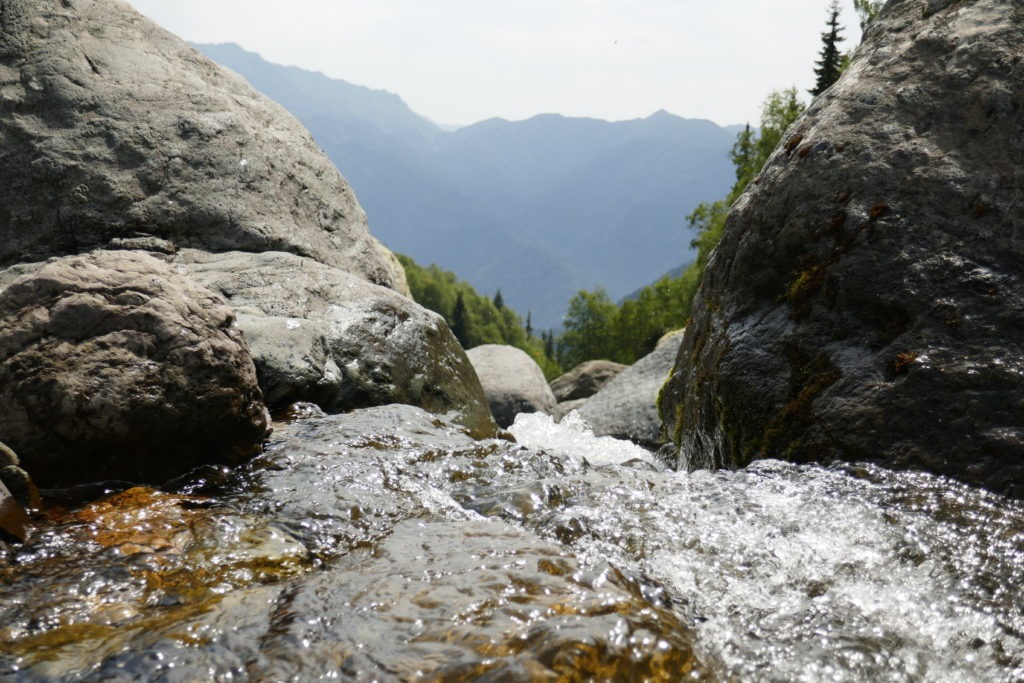

The start of the day wasn’t too hard. However, somewhere in the afternoon we started an endless climb – or at least, it felt like it was endless at the time. I think it was a climb of around 800 meters. Which isn’t easy, but it felt like a lot more than that. Probably because this was the first real climb of the trip.
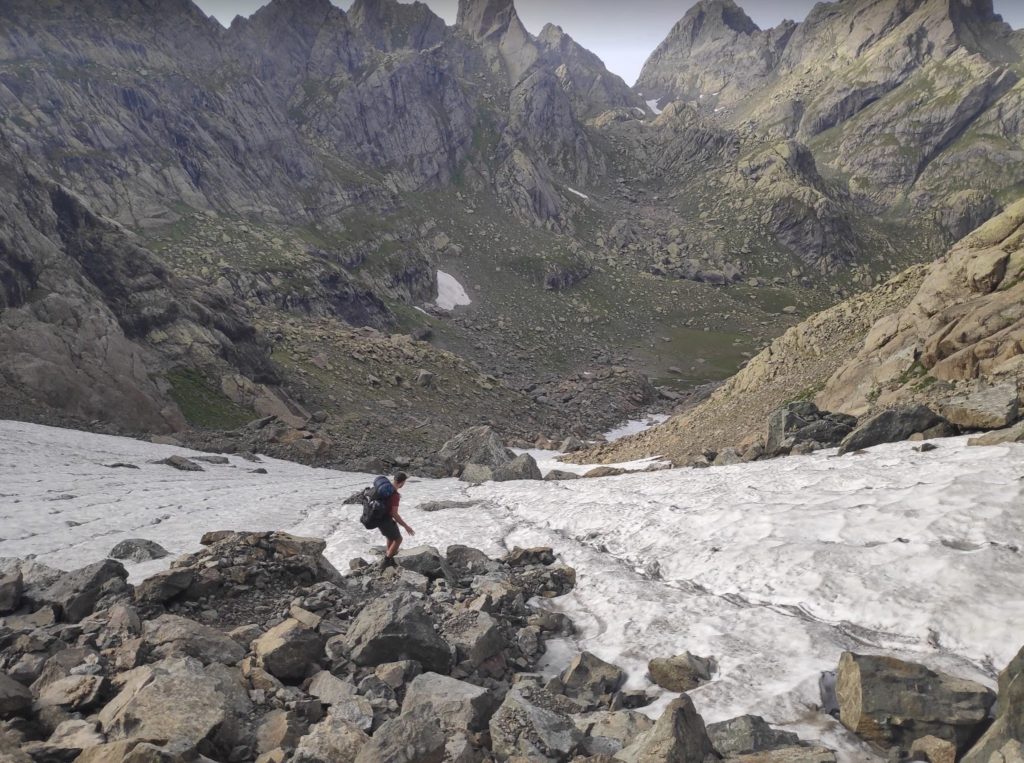

The last hours of the day were especially difficult. When we finally reach the highest point of the day, we still had to go down on a somewhat tricky descent. The trail is covered by ice and at some points, the ice was too thin to hold our weight. Luckily we reached Okhoje lake (which was at the bottom of the descent) without any accidents.
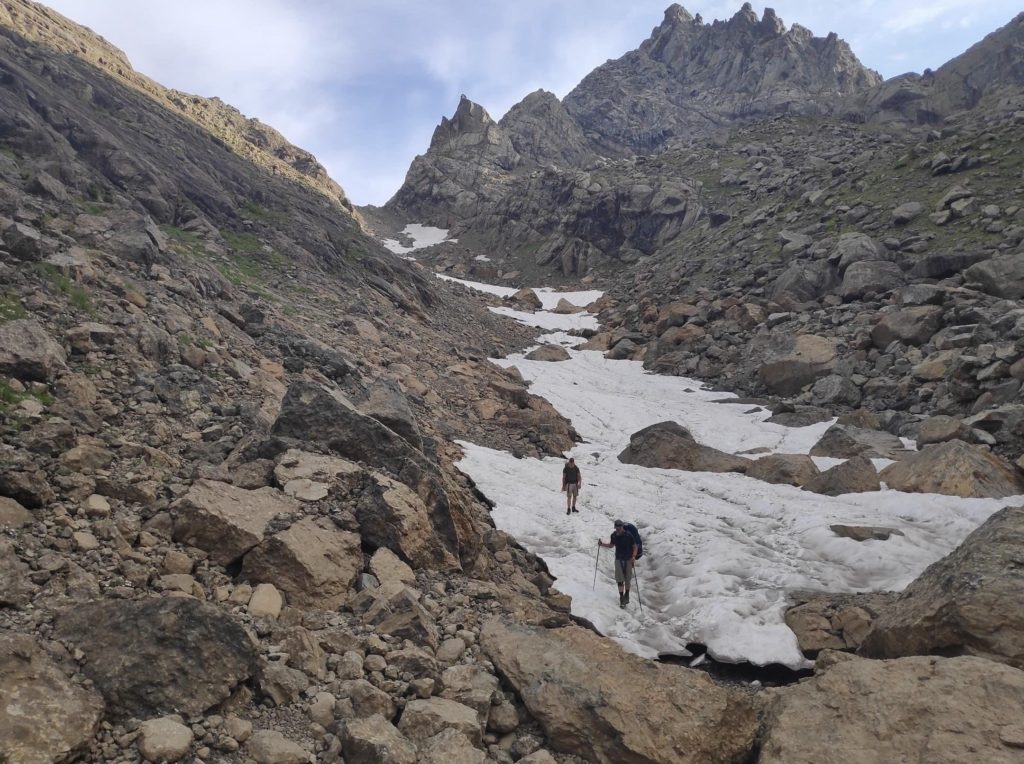

The lake is our second camping spot of the trip. I think you would agree that this one beats the previous spot. At this point, it’s kind of hard to believe that this is not the “main lake” of the trip.
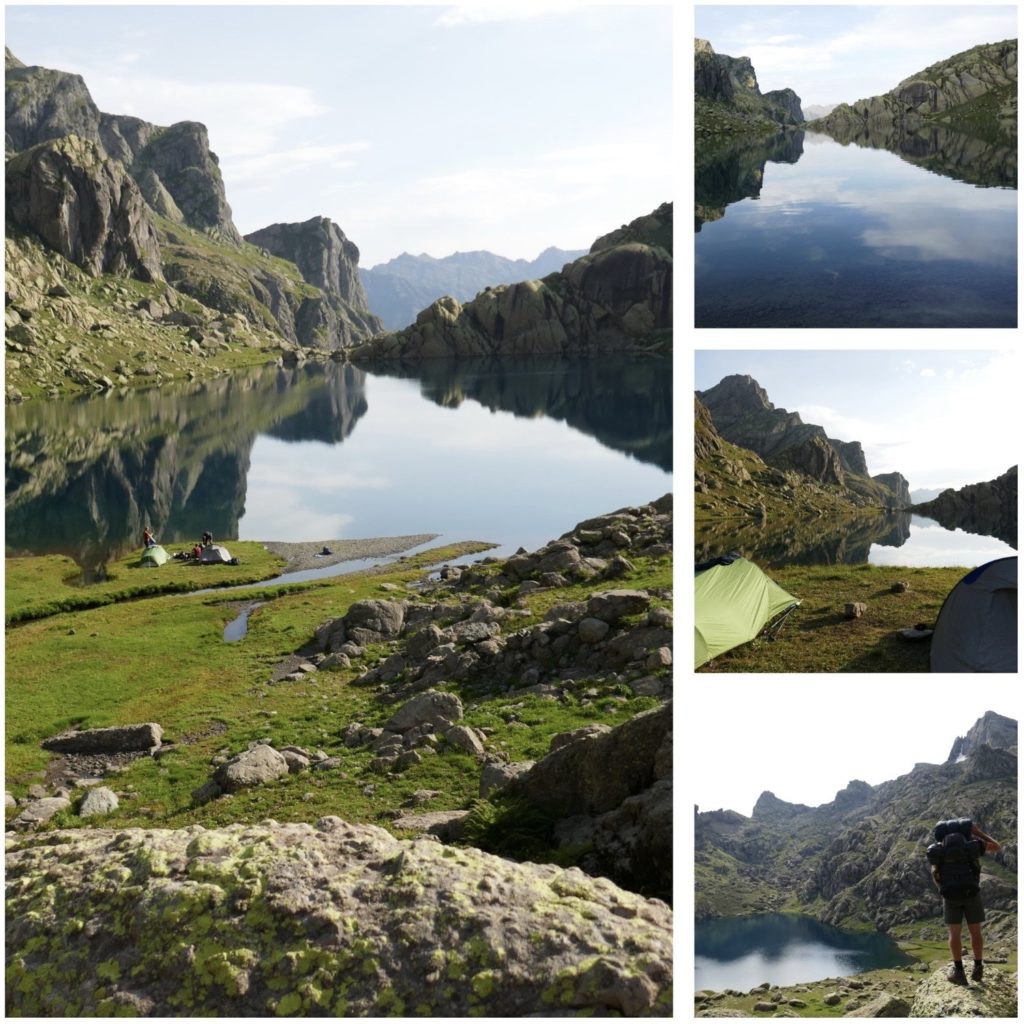

Stage 3: reaching Tobavarchkhili lake
The next time is nowhere near as exhausting as the previous one. Which is a good thing at this point. We plan to only hike half a day before reaching the cherry of the trail, Tobavarchkili lake.
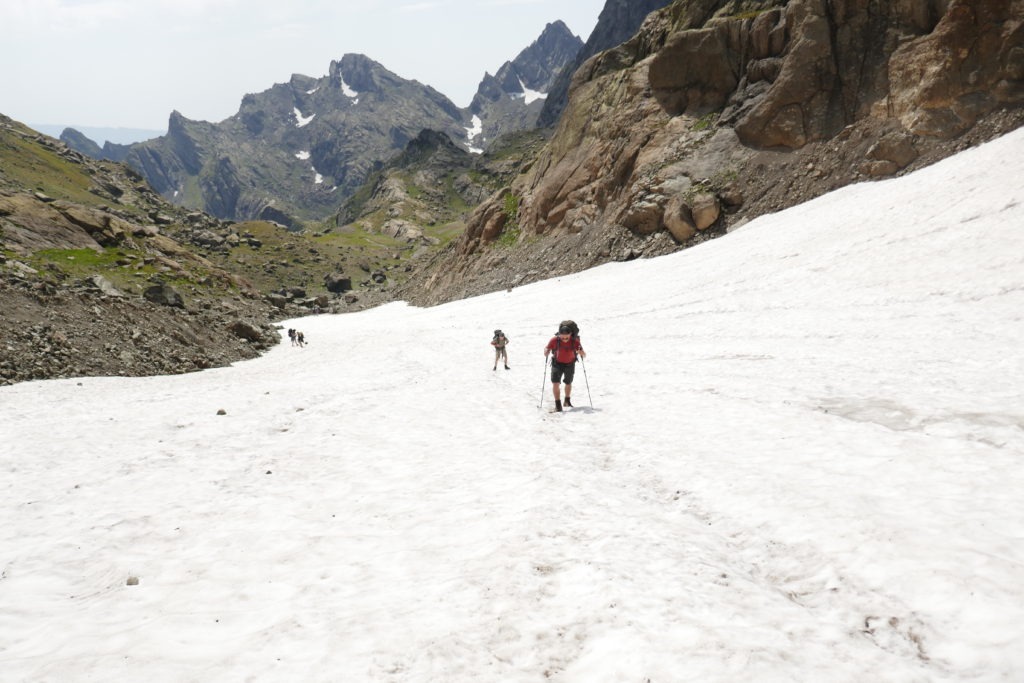

We start climbing first thing in the morning.
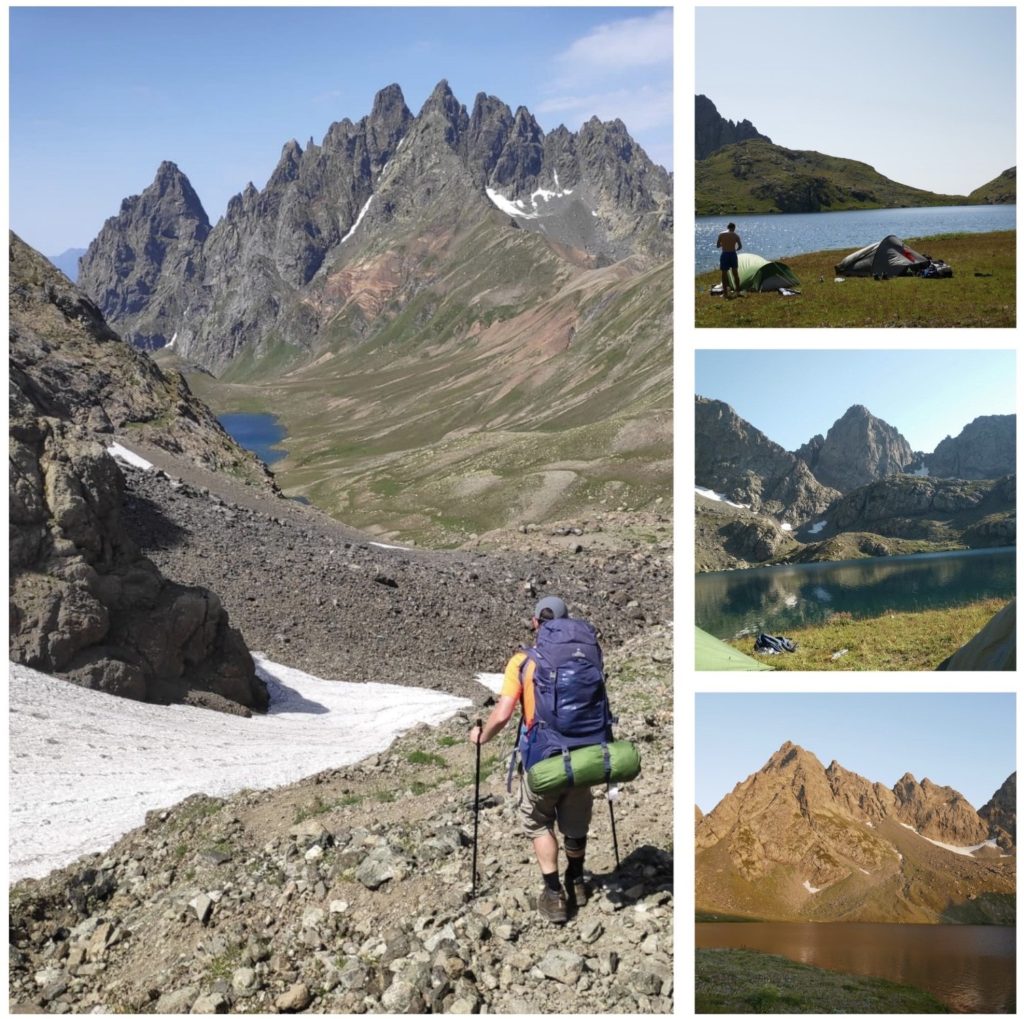

Not much later, we can already see the beautiful preview of the lake The beauty is not only in the lake itself but also in the surroundings. The lake is situated at 2700 meters above sea level and it’s still not very well-known by tourists.
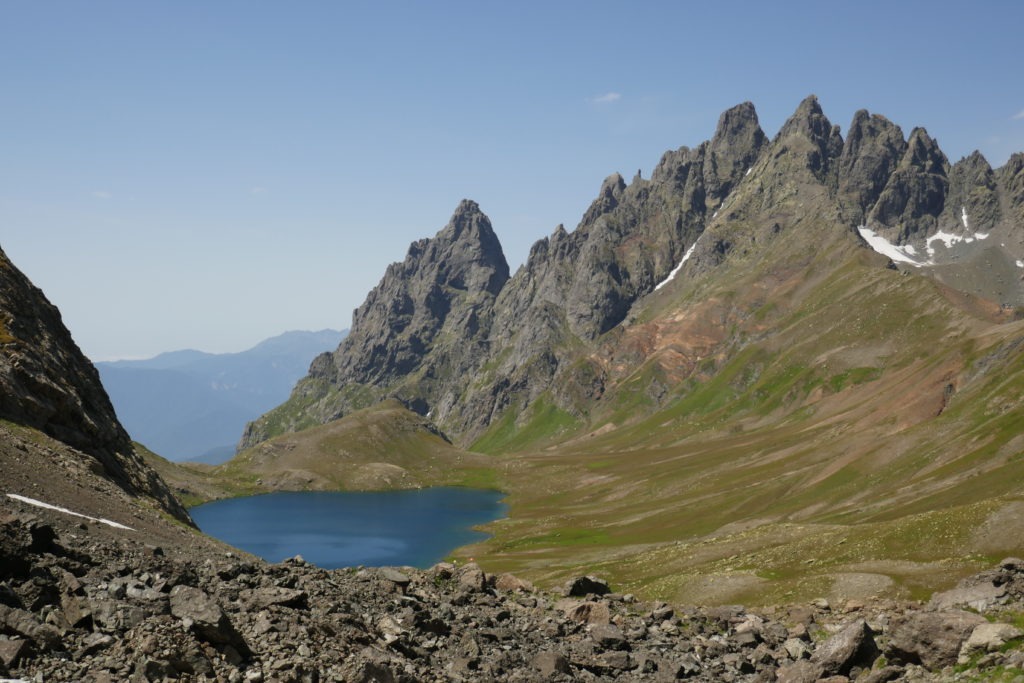

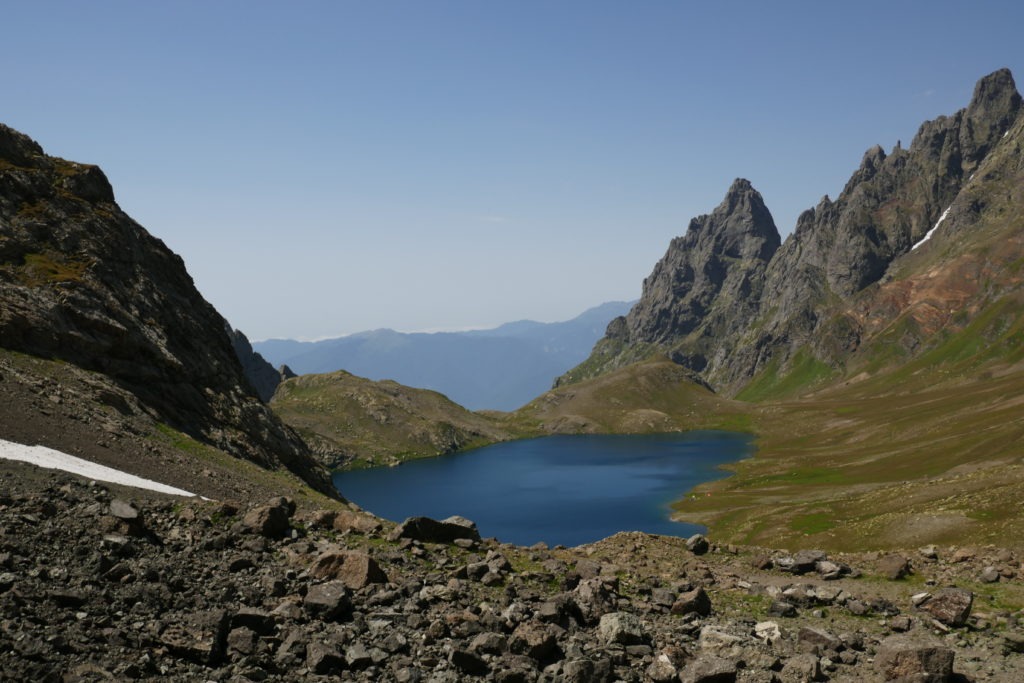

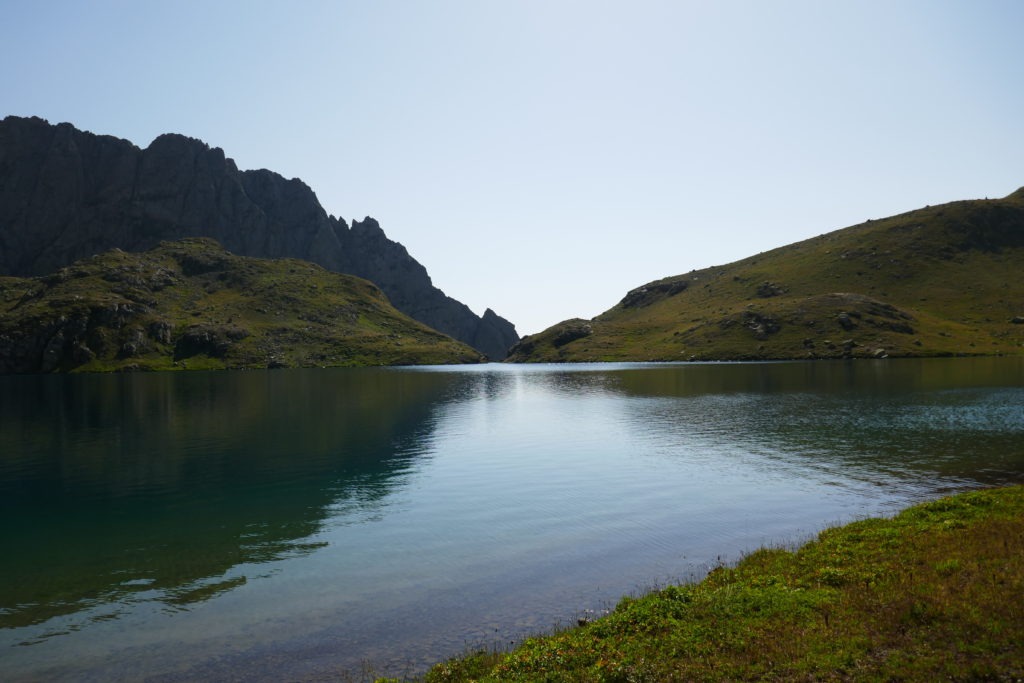

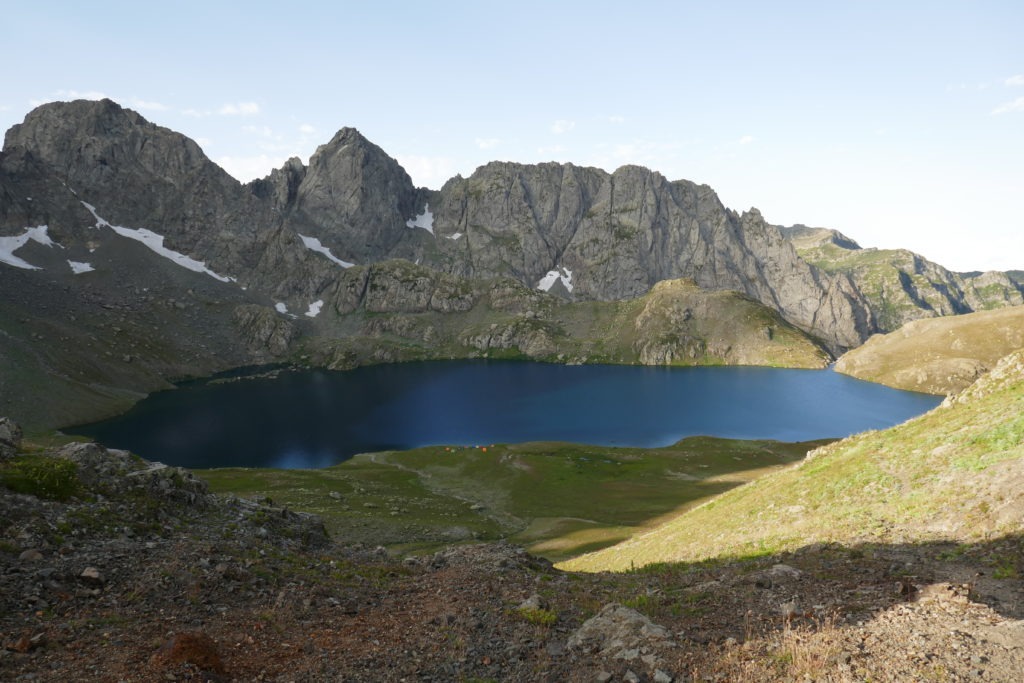

Stage 4: reaching civilisation
Only one more thing to do: get back to civilisation.
We know that this will be a very long day, so we decide to leave very early. It’s going to be a hard but a beautiful day.
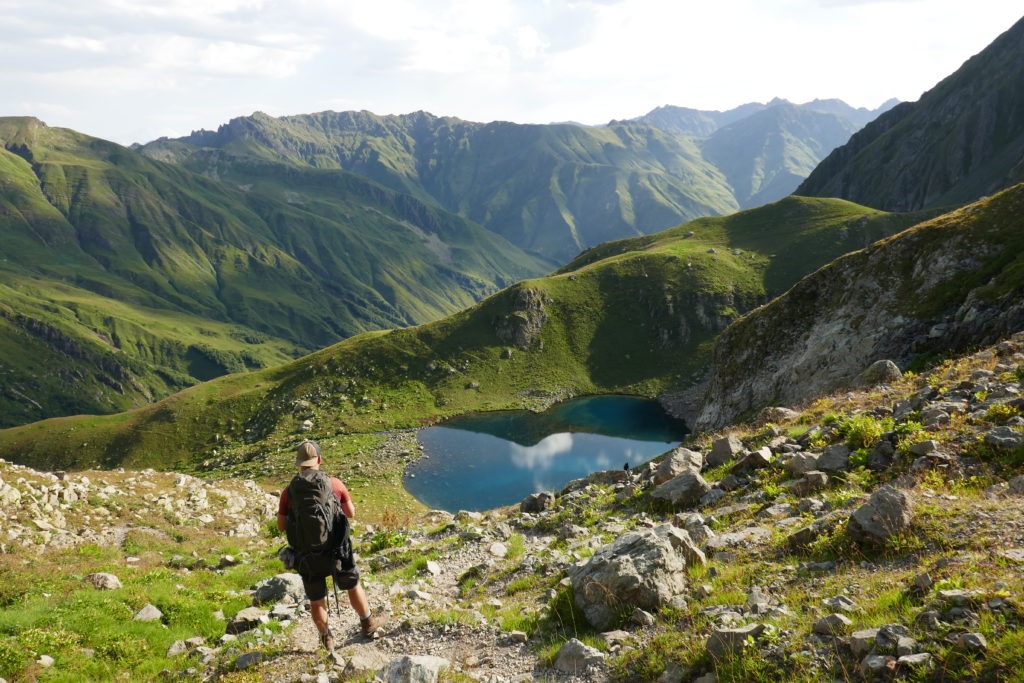

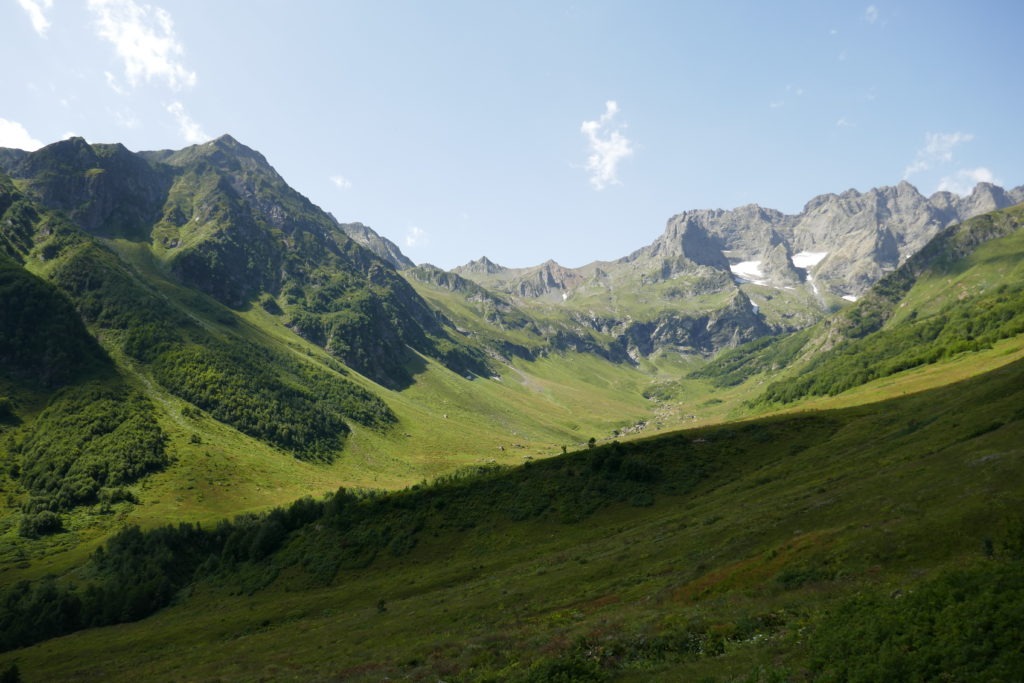

We need to spend one more night in the wilderness after a loooong day of hiking. It doesn’t beat last night, but it’s still a pretty good-looking spot. The nice thing is that we are almost at the tree line and we are able to collect some dead roots and create a little fire.
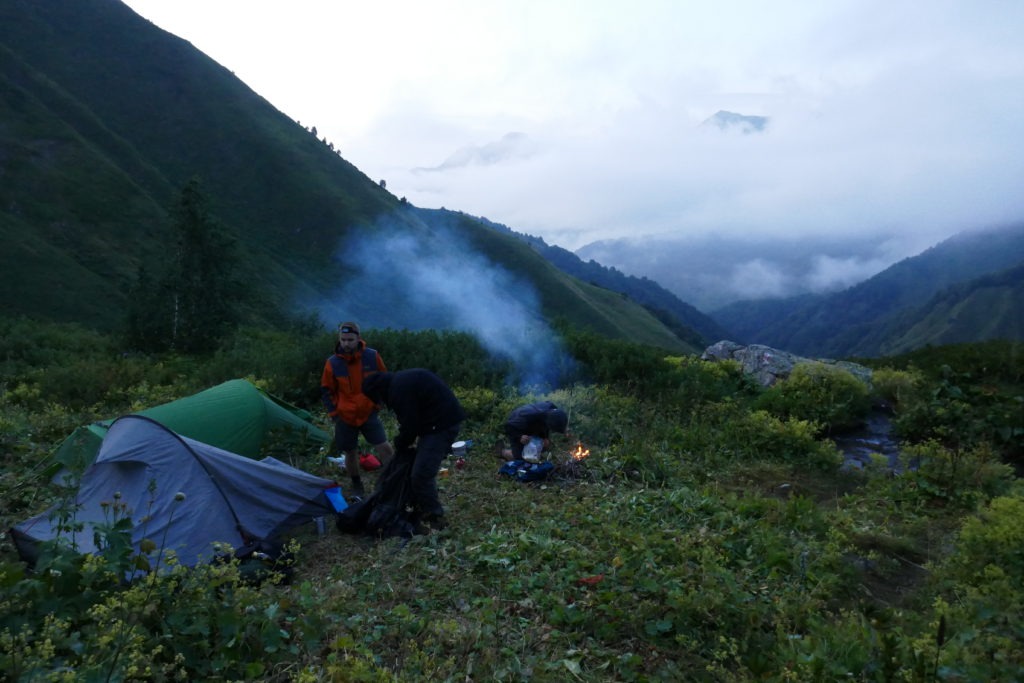

The next day we finally reach the first sign of civilisation after a nice walk below the tree-line.
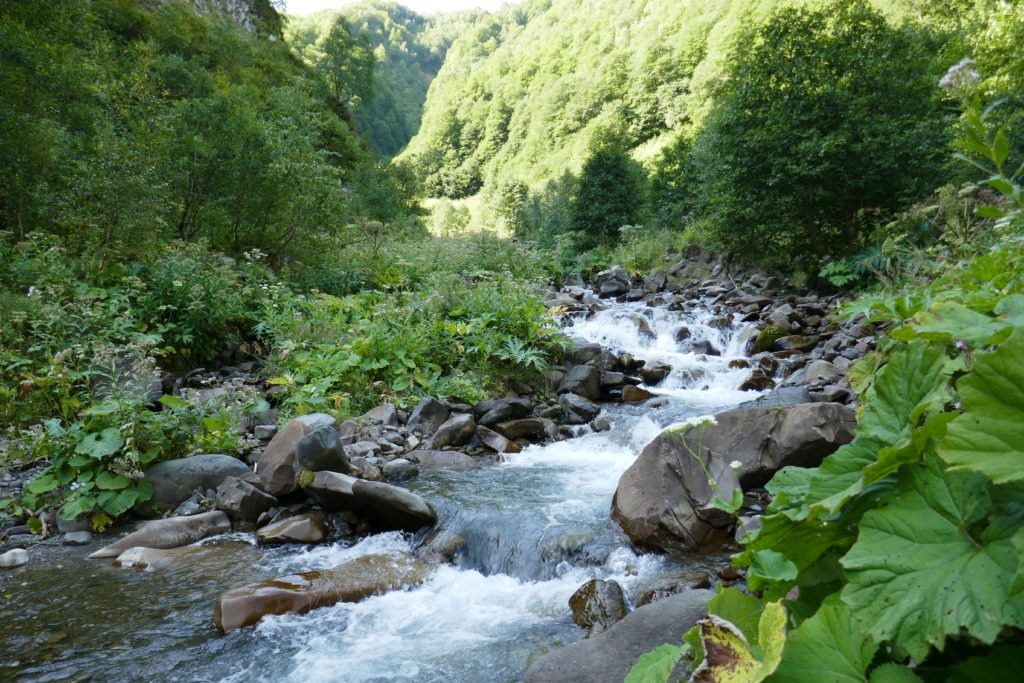

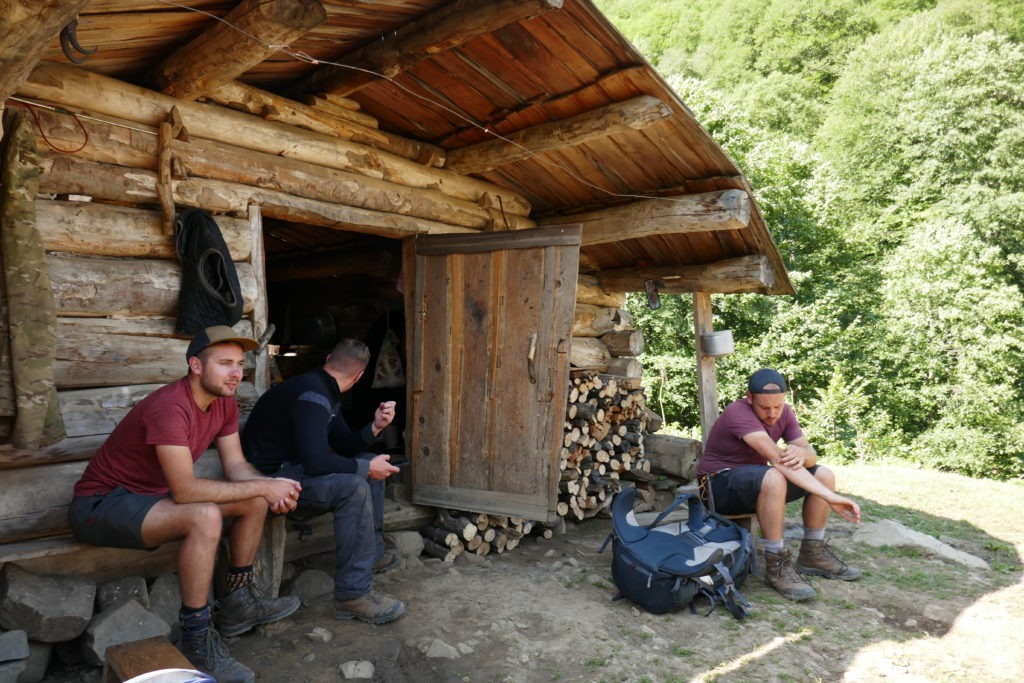

Preparation
In case you are considering hiking this amazing trail you should think about a couple of things.
First, make sure you know the route, best resource for a trail description would definitely be Caucasus-trekking.
On top of that, make sure to bring good gear: a decent hiking tent, a good backpack and appropriate hiking clothes.
Conclusion
Usually I don’t write articles like this. I usually think “who cares about my personal hiking stories”. However, this hike was simply exceptional, so I thought I might as well convince some people to hike this amazing trail.
Thanks so much for sharing your impressions and great photos. It’s on my list now!! 🙂
Thank you for sharing this hiking story and the beautiful pictures!
Beautiful, cannot wait to visit this gem I have not been here yet. I must have to say, as a proud and honest Georgian, we are not a part of Europe. Not official in Europe or not culturally. In fact, Georgia is once part of Iran/Persia, and lost in agreement deal, can you call Iran Europe? We are proud Caucuses, land one foot in Europe, one foot in the Asia, and culture also more like Caucuses but sharing with neighbors more like in East than West, and not Europe. You can see our hats and clothes resemble more like peoples coming from Dagestan (once part of Persia) and all the way to modern Iran and Turkemenistan. Most people, and especially Ossetians (become aware of this people and topic, so we can have our brothers back in peace) is “Iranic” and sub category “Scythian.” To call European is what is benefit for our people politically, but reality is Caucus. Now I have thoughtful question for you and readers who hope to visit this beautiful land and people we have; should we, the world, make a new label as Caucuses? Should we make more labels and dividing people, like how this term middle-east is meaning nothing other than political categorization, and should we have more misrepresentations and confusions in our presently misunderstood world? Or should we realize some places are like a middle ground and bridge to better understand one another from different sides. For sake of future generations and hope of better world, it is good idea to discuss these things.
Now I hope your readers and yourself to come visit Georgia with this mentality in your mind and further education about who are Georgian people. To ask questions of origin and commonality. Why do we eat dumplings like other Scythian tribes, and why do we share the oldest wine culture of the world with our Southern cousin Iran (but we are older and still on going;) )? Why is the language sharing many words with Farsi than other languages, but yet unlike any other language in the world? How is the mighty Caucuses mountains, who has a peak named Elburs, related to the cognate of this word Alborz, which is defining the mountain range in Iran? There is secrets to life, history, and peoples of these regions in these riddles, if you dig you will find them.
Admiration for your exploration and continuing the journey,
Beqa